‘1 in 4 men over 30 has low testosterone.’
On the other hand, while too much testosterone in men is uncommon, it can create dramatic health complications, such as infertility and a higher risk of prostate cancer.
The following article provides a breakdown of the role of testosterone in the body, the impact of high or low testosterone, its causes and treatments. Read on to identify whether you have a testosterone hormone imbalance and need a testosterone blood test.
What is Testosterone?
Testosterone is a male sex hormone found in both men and women. It’s mainly produced by the reproductive system – the testes in men and the ovaries in women.
Men have around 20 times more testosterone than women.
The body changes small quantities of the hormone testosterone into a type of estrogen (female sex hormone) called estradiol. This is essential to produce sperm, stimulate the sex drive, build red blood cells, regulate fat, and develop muscle mass.
The body releases a higher amount of testosterone when a child goes through puberty before levelling out and slowly declining from around 30-40 years old. If men do not have enough testosterone, they may experience erectile dysfunction (ED), hair loss, and reduced muscle mass.
Types of Testosterone Imbalance
Low Testosterone
Low testosterone is also known as male hypogonadism. If your testosterone measures less than 300 nanograms per deciliter, the testes are not making enough testosterone, disrupting the body’s sexual functions.
High Testosterone
High levels of testosterone are known as hyperandrogenism. It’s when the testes overproduce the sex hormone testosterone and can imbalance other sex hormones (or androgens) within the body. DHT (dihydrotestosterone) is one of these androgens, and high levels can cause hair loss, acne, and depression.
However, it’s rare for men to have too much testosterone. The causes of an imbalance are typically due to consistently taking steroids.
RELATED: Worried about a testosterone imbalance? Take a Testosterone Blood Test.
Signs You Have a Testosterone Imbalance
Low testosterone levels can cause many difficult symptoms to manage and affect self-esteem regarding sexual functioning. Here are a few signs of hypogonadism:
Symptoms of Hypogonadism (Low Testosterone)
-
- Chronic fatigue – If you consistently feel tired, no matter how much sleep you get, it may well be a sign of low testosterone levels.
- Diminishing muscle mass – If you find it challenging to put on muscle or your muscle mass significantly decreases, you may have low testosterone levels. This is because testosterone helps build muscle, so not enough will reduce it.
- Depression – A dysregulation of any hormone creates a knock-on effect in the rest of the body, preventing it from functioning correctly. This imbalance of hormones can cause severe mood swings and even depression by preventing essential hormones from reaching vital organs and disrupting serotonin signals.
RELATED: Take an Advanced Well Man Blood Test.
- Lack of libido – You have no desire to engage in sexual intercourse, and you find it difficult to enjoy when you do. This can sometimes lead to feelings of isolation and disconnect from your partner.
- Erectile dysfunction – You find it difficult to get or maintain an erection. It can significantly affect men’s self-esteem and lead to avoiding sexual activities. Learn how to treat erectile dysfunction.
RELATED: Take a blood test for erectile dysfunction.
Symptoms of Hyperandrogenism (High Testosterone)

High testosterone is more common in women and is typically characterised by PCOS. However, it can occur in men and cause significant health problems. Here are a few symptoms of hyperandrogenism:
- Increases risk of prostate cancer – Men with high testosterone levels have an ‘18% greater risk of prostate cancer.’ You can take a prostate blood test here.
- Overly aggressive behaviour – Testosterone stimulates the part of the brain associated with competitiveness, dominance, and verbal and physical aggression. Too much can lead to violent and antisocial behaviour. These persistent feelings of aggressiveness can cause irritability, as you may become aggravated by seemingly insignificant things.
- Mood swings– Similarly to overly aggressive behaviour, high testosterone can cause moods to fluctuate from one end of the spectrum to the other. For example, high testosterone may lead to impulsive, risky behaviour and lack of judgement. The aftereffects of the actions from this high testosterone behaviour can spiral men into depression—for example, gambling or investing only to lose the money and create financial difficulty.
- Low sperm count– If you struggle to conceive, it may be because high testosterone levels are lowering your sperm count. This is because testosterone creates sperm, so too much testosterone may seem like it enhances sperm production. However, it signals the brain to stop producing sperm because it already has enough – creating the opposite effect.
RELATED: Try our Male Hormone and Fertility Blood Test.
What Causes Testosterone Imbalances?
Natural Causes
-
- Genetics – Research has identified that particular genetics play a role in reducing the usual amount of testosterone in men. For example, Klinefelter Syndrome is a male condition that impacts testosterone levels and can cause infertility.
75% of men with Klinefelter Syndrome never receive a diagnosis.
- Age – It’s natural for testosterone to drop from about 30-40 years old. However, it can decrease more rapidly in some individuals and stimulate the symptoms of low testosterone levels.
Lifestyle Causes

- Excess weight – Carrying extra weight through fat cells puts pressure on the body and makes it more difficult for hormones to reach their areas efficiently. This can disrupt signals to stimulate the right amount of testosterone.
- Stress – There’s a reason they say stress is a killer, and that’s because it dramatically impacts hormones. When stressed, the body releases high amounts of cortisol, also known as the fight or flight hormone. This directs all the body’s energy away from non-vital functioning, such as the testes.
- Not exercising – Movement strengthens the heart muscles and improves blood flow, which helps hormones reach the places they need. If you live a sedentary lifestyle, your body may not efficiently produce and carry testosterone.
- Poor diet – Overeating the same thing or not getting enough nutrition through your diet will imbalance your hormones, including testosterone.
Medication Causes
- Medication and treatments – Some medicines can cause imbalances within the body, and one of these is disrupting hormone levels. Intense courses of treatment, such as radiation and chemo, also affect the reproductive system and may stop the testes from producing the correct amount of testosterone.
- Steroids – Taking steroids to build muscle mass puts the body into an overdrive of testosterone production. While it helps dramatically gain muscle, it negatively impacts other areas of the body, causing testicular shrinkage and even infertility.
- Testosterone supplements – It’s rare for men to need testosterone supplements, and research shows that most men do not need them as they can disrupt the vital role of testosterone.
A study showed that a staggering 88.4% of men taking testosterone supplements had zero sperm count, rendering them temporarily infertile.
However, six months after cutting out these supplements, their bodies start rereleasing sperm.
How to Treat Testosterone Imbalance
- Testosterone hormone replacement therapy – This is the most common way to treat low testosterone levels and increase testosterone production. It can be taken in various ways over a few weeks through injection, orally, using a gel, or even with a testosterone stick, similar to deodorant.
- Lifestyle changes – A lack of exercise, poor nutrition, excessive weight, smoking and drinking can all cause a hormone imbalance. If you have too much or too little testosterone, the first call of action will likely be to change your lifestyle.
- Medication – If you are on medication, it may cause a hormone imbalance. If this is the case, speak to your doctor, and do not stop medicines unless medically recommended.
- Cutting out bodybuilding steroids – Steriods can harm the body and cause a considerable testosterone imbalance which may result in acne, mood swings, and infertility. Stopping steroids is an excellent way to get your body back in balance.
If you are below 40 and take steroids for muscle mass, you should increase your muscles using natural methods, such as weight training, eating high-protein meals, and taking the correct supplements and vitamins.
RELATED: Try our vitamins blood test.
Manage Your Testosterone Levels
If you have concerns about a male hormone imbalance or are experiencing the symptoms of low or high testosterone levels, nurture your body and take a blood test. It’s a quick and straightforward way to bring peace of mind and enable you to live the quality of life you deserve.
I Want to Take a Testosterone Blood Test.
If You Found This Article Useful, You May Also Like:
- How to Avoid Overdoing Supplements
- Men’s Hormone Imbalance: What You Need to Know
- 8 Causes of Hair Loss in Men
Written by Emma Carey. Emma is a health and wellness enthusiast who likes to know the science behind how supplements, vitamins, nutrition and exercise affect the body. She’s on a health and fitness journey to improve her lifestyle and live life to its fullest.
FAQs
What are the symptoms of low testosterone in a male?
A loss of muscle mass, reduction of hair (head, armpits, pubic and beard), low libido and erectile dysfunction are symptoms of low testosterone in a male. Fatigue, mood swings, and depression are further signs that a man has a lack of testosterone in the body.
What happens to men when testosterone is low?
When a man’s testosterone is too low, they will struggle to get or maintain an erection (known as erectile dysfunction). They also may have a lack of sex drive. Testosterone is needed to build muscle and increase bone strength. Therefore the muscles will reduce, and you may feel weak. Men will also start to lose hair all over the body, including the chest, armpit, beard and pubic region.
How do you fix testosterone imbalance?
You can fix a testosterone imbalance by using hormone replacement therapy. This can be taken through regular injections, ingested through gel or using a testosterone stick. You can also manage testosterone levels through diet and lifestyle.

